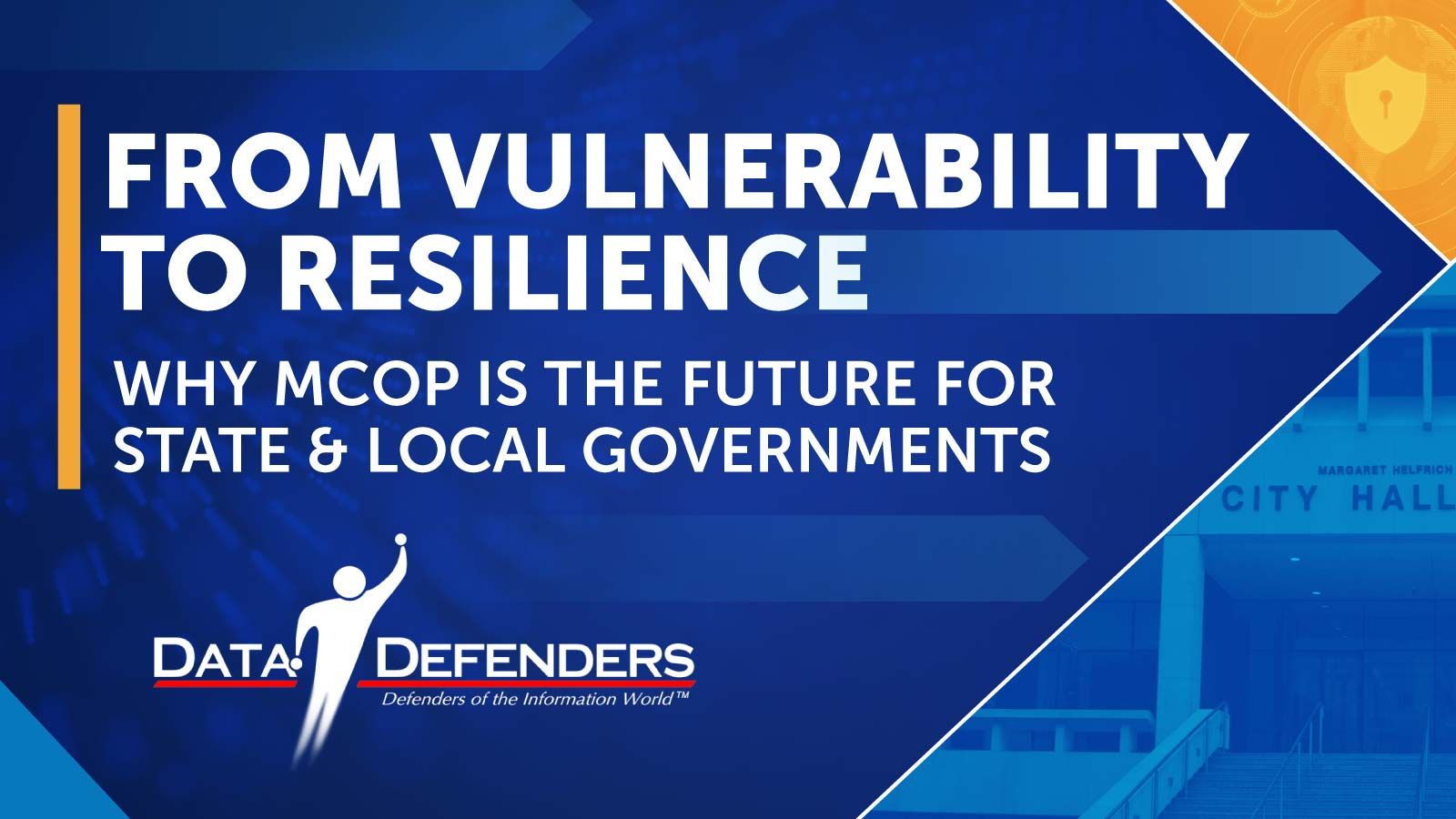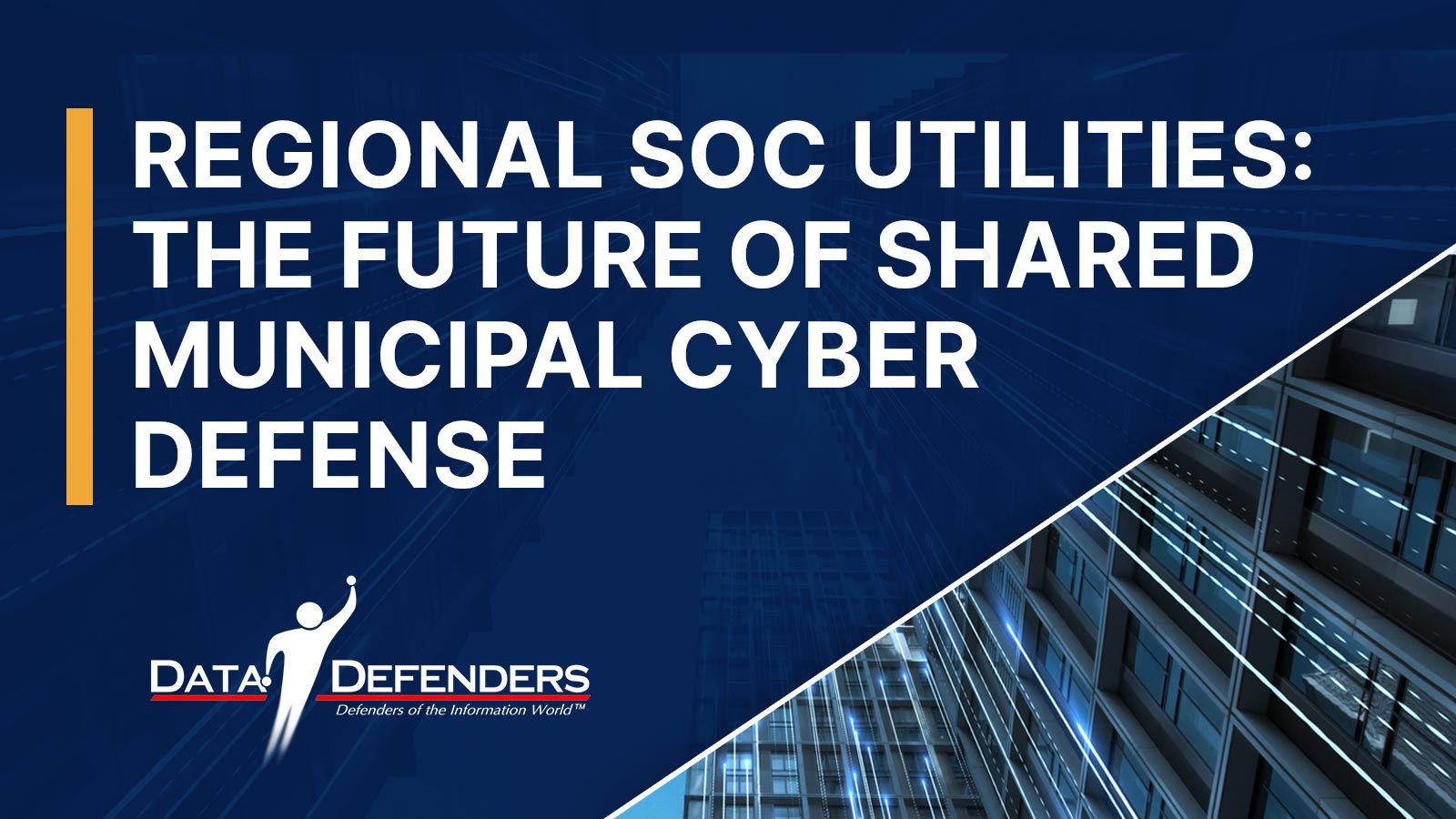From Vulnerability to Resilience: Why MCOP is the Future for State & Local Governments
Problem
Across the country, municipalities and nonprofits are facing a cyber storm unlike anything they’ve seen before. Attacks are increasing in frequency, cost, and sophistication — leaving local governments, schools, and nonprofits vulnerable.
Consider the latest numbers:
- Since 2023, there has been a 173% increase in phishing activity targeting municipal organizations.
- Ransomware attacks are up 51%, causing prolonged downtime for critical services.
- The average cost per ransomware attack is $1.85M, with nearly 10 days of downtime per incident.
At the same time, adversaries — including China, Iran, North Korea, and Russia — are deliberately targeting municipalities as “low-hanging fruit.” These are the organizations tasked with protecting sensitive citizen data and delivering essential services, but they are being left dangerously exposed.
Federal support is shifting, but uneven. On one hand, CISA and FEMA recently announced $100M in new cybersecurity grant funding to help state, Tribal, and local governments strengthen their defenses. On the other hand, two critical federal authorities — cyber threat information sharing and the State and Local Cybersecurity Grant Program (SLCGP) — are set to expire on Sept. 30, 2025 unless Congress acts. The House has moved to reauthorize both:
The WIMWIG Act (H.R. 5079) extends the 2015 Cybersecurity Information Sharing Act through 2035, modernizing it for AI-driven threat sharing.
The PILLAR Act (H.R. 5078) continues the SLCGP, which has already provided $1B in funding to local governments.
Both measures still face Senate hurdles. A lapse could disrupt the very information-sharing that municipalities depend on to defend themselves.
Approach
In this landscape, one thing is clear: traditional approaches aren’t enough. Most municipalities rely on Managed Security Service Providers (MSSPs). But MSSPs only monitor and alert — leaving the heavy lifting of response to already-overstretched IT teams.
This creates what we call an asymmetrical model:
- The provider detects and notifies
- The customer is left to mobilize staff, resources, and processes in the middle of a crisis
It’s reactive, fragmented, and costly.
Data Defenders takes a different approach. We pioneered the Managed Cybersecurity Operations Provider (MCOP) model — an operations-first, continuous resilience framework that closes the gaps MSSPs leave behind. Instead of alerts without action, MCOPs integrate governance, infrastructure, and process into one seamless operational model.
Solution
Data Defenders’ MCOP framework is built on four key pillars that deliver resilience at scale: DataShield Cybersecurity 360°®
This end-to-end platform ensures that governance, technical infrastructure, and daily operations are all aligned. Instead of ad hoc measures, municipalities gain a balanced, fully integrated cybersecurity lifecycle.
Processing 75 million signals daily, this AI-driven system transforms raw data into actionable intelligence. By combining automation with human expertise, it helps operators make faster, more effective decisions.
The Regional model proves regional collaboration works. It delivers enterprise-grade cybersecurity at 77% less cost than an in-house SOC, making 24/7/365 protection affordable for municipalities that could never fund it alone.
With a global shortage of 3.4M cybersecurity professionals, staffing is the Achilles’ heel for local governments. Our MCOP embeds skilled analysts directly into municipal operations, closing the gap without the high turnover.
Outcome
The City of Aurora, IL, demonstrates what this looks like in practice. Before partnering with Data Defenders, Aurora relied on ad hoc cybersecurity measures that left its critical infrastructure exposed. After implementing DataShield Cybersecurity 360°® and DataShield Analytics®, the results were dramatic:
- 35,331 threats detected
- 351 high-severity threats mitigated
- Zero major incidents recorded
(Aurora, IL Cybersecurity Case Study, Data Defenders)
Aurora transformed from a vulnerable target into a resilient, cost-effective model that other municipalities can follow.
Conclusion
Federal grants and legislation will play a role, but the real difference will come from operations-first resilience. The MCOP model — powered by regional utilitis like The Regional SOC — ensures municipalities and nonprofits can protect citizen data and critical services today, regardless of Washington’s calendar.
With MCOP and RSOC, leaders gain:
Enterprise-grade protection at municipal-scale cost: RSOC delivers 24/7/365 operations at 77% less cost than an in-house SOC
Integrated governance with trusted operations: municipalities retain oversight while RSOC manages daily security
Regional intelligence sharing as a force multiplier: communities collaborate to detect and stop threats faster
Resilience by design, not reaction: a sustainable model that scales beyond election cycles and budget cycles
By working together through The Regional SOC, municipalities don’t just defend individually — they defend collectively, multiplying their strength across the region.
Learn more: data-defenders.com/resources Contact Us: 888-601-3064 Data Defenders – Protect and Secure What Matters.


